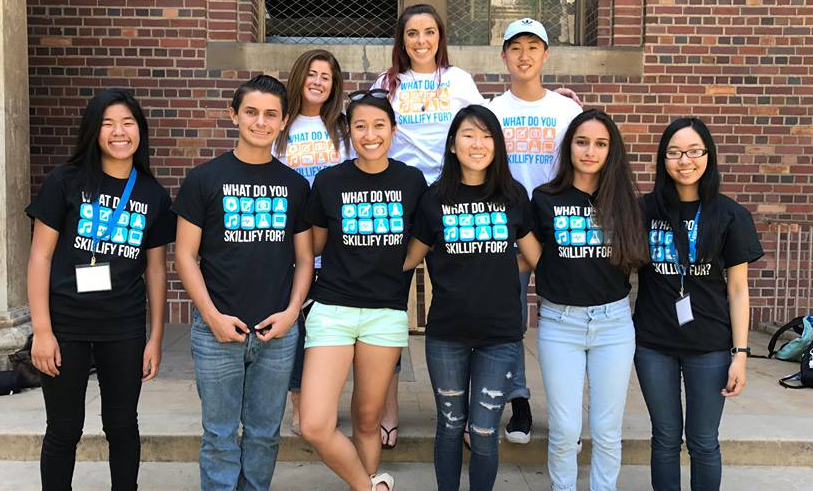
12 Jan Five reasons why we should let the kids work
We want the best for our kids.
We want them to do well in school so we help them with their homework—even if that means getting stuck doing a lot of it ourselves. We want them to be well-rounded so we load up the minivan and take them from soccer practice to scout meetings to ice hockey. We pay an arm and a leg for their summer camps, SAT practice tests and homecoming dances.
And while going to school and playing soccer and volunteering, most kids never work an actual job. Even if they mention wanting a job, we typically say no. We don’t want them to worry about money. We don’t want them to get distracted from school. Babysitting or doing some chores around the house is cool, but working after-school shifts at the local store or an internship at the music studio seems like it could take away from their high school experience. But is that actually true?
What research suggests about working students
Research makes it pretty clear that we’ve got to let the kids work (a report by the Workforce Training and Education Coordinating Board and research conducted on student internships by EBSCO show a significant positive impact on kids that work between the ages of 13 and 18).
Here are five reasons why working is good for our students:
- They do better in school. Kids get excited about school because they finally believe that math is important in the real world. All they needed was a real life example to prove this to them. In-class examples are great, but once they put these skills to use in the field, they will realize how important they are after all. While we still don’t know why cursive was taught for a whole year, we know that work experience does increase student engagement in their academic environment (as shown by EBSCO’s research). And not just engagement… work experience even helps our students do better in school AND stay in school.
- They learn how to interact with adults. Our kids seem to listen to everyone but us. We can tell them one thing, but they won’t believe it until a stranger tells them too. And usually they forget that we told them the exact same thing just the day before. But that’s cool, as long they eventually commit these important lessons to memory. Kids rarely want to just listen to adults we introduce to them, so working allows them to identify their own mentors. Plus, they’ll have older bosses and colleagues; they’ll need to learn how to talk professionally, and not just in emojis.
- Working builds character. Our kids need to know how to set goals, work with timelines, identify resources, seek information and feedback, and learn from trial and error. They need this to thrive in school and life. The report by the Workforce Training and Education Coordinating Board proves that these key behaviors are reinforced by work experience and asserts that exposure to work experience should occur before high school graduation. We’ve all likely heard Angela Lee Duckworthand others speak on “grit” and this is exactly what we need to instill in our kids. Let’s remind them that it’s okay to fail on some tasks in their first internships because it is a learning experience. Their reaction to getting something wrong is key. As long as they ask questions, take corrective actions, and learn what they need to succeed at the task the next time, they will be on the right path.
- Working makes our kids more confident. We all want our kids to feel good about themselves and be able to carry themselves in a mature manner. EBSCO found that “internships can increase students’ maturity levels and can improve their self-confidence and self-concepts.” What’s better than a kid with a strong sense of agency?
- Work history is better than no history. No brainer here. The earlier kids start to work, the more experience and skills they’ll build. So when the time does come where we want our kids to absolutely have jobs so they don’t have to live with us again, they’ll actually have a solid work history to make it happen. Plus, the Workforce Training and Education Coordinating Board says students who work before graduating high school are able to “obtain positive recommendations from their early employers, and draw on social networks of other workers.” Translation: we won’t need to harass our friends to get our kid’s foot in the door later in life.
High school is a time for learning, in the classroom, on the court or field, and in professional settings. Well-rounded students will graduate high school with a breadth of experience that will serve as a solid foundation to thrive in any post-secondary choice they make.
Let the kids work. Let the kids play. And most importantly, let the kids learn first-hand what they want to do with their lives.
Keep reading: Are students truly college-ready without career-readiness?

No Comments